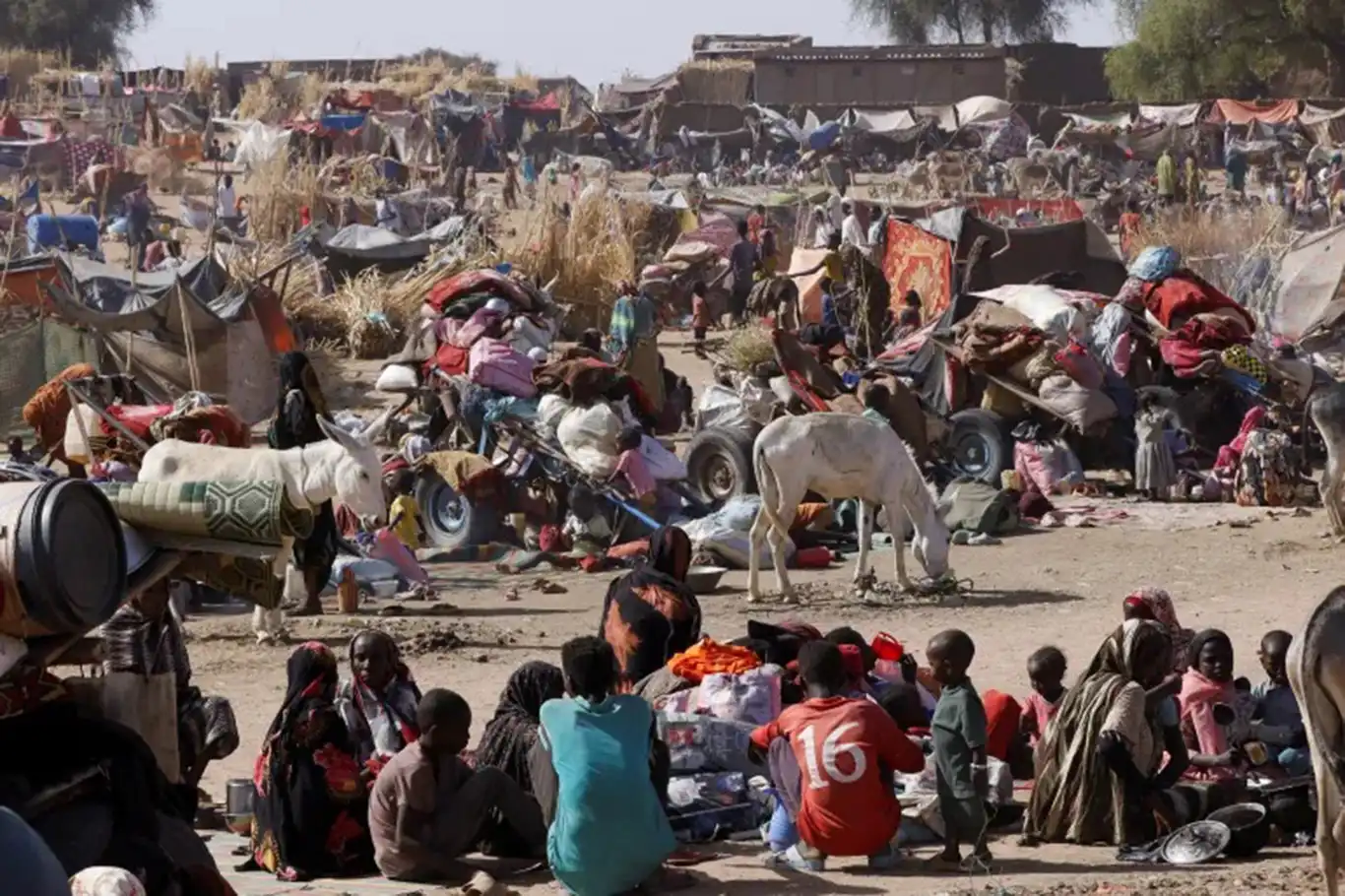UNICEF: Thousands of displaced Sudanese families face food and water shortage


Thousands of families from Sudan’s besieged city of El-Fasher are arriving in Tawila after days of arduous travel without adequate food, water or shelter — a stark testament to the rapidly deteriorating humanitarian situation in the region.
According to sources from UNICEF and the International Organization for Migration (IOM), displaced families have been walking for four to five days — sometimes longer — to reach relative safety in Tawila, approximately 60 kilometres from El Fasher. Many arrive in severe condition: dehydrated, malnourished, traumatised and separated from loved ones.
Nutrition specialist Abubazar Ahmed from UNICEF reports that in one week alone more than 6,000 people reached Tawila. He emphasised that many children have become separated from their families during the chaotic exodus.
“The displaced face major challenges along the way, with some being beaten, while others spend days without food or water,” Ahmed said.
The travelling conditions are brutal. Reports describe long marches during day and night, under extreme heat, with minimal provisions, often passing through hostile territory.
The medical and humanitarian systems in the region are collapsing under pressure. In El Fasher itself, the World Health Organization (WHO) warns of patients dying in hospital due to severe shortages of supplies and services.
In Tawila, humanitarian agencies are overwhelmed. According to IOM, on one single day more than 7,400 people were displaced from El Fasher, adding to a cumulative 33,000+ over just three days.
Many children arriving are severely malnourished. One aid agency reported children crawling from El-Fasher because they were too weak to walk.
Moreover, outbreaks of disease are compounding the crisis: in one report, cholera deaths in North Darfur have climbed significantly, especially among displaced populations sheltering in camps.
The surge in displacement comes as the paramilitary Rapid Support Forces (RSF) tightened its siege of El Fasher and reportedly captured the city, prompting widespread fear and flight among civilians.
Reports from aid agencies and human rights groups allege mass killings, ethnically-motivated violence, attacks on civilians, and systematic violations of humanitarian law inside El Fasher.
The IOM has called on all parties to allow safe passage for civilians and for humanitarian access to be guaranteed.
The population of El Fasher has reportedly shrunk by as much as 62 % this year due to displacement.
Tawila’s displaced population has doubled in recent months, now hosting some 576,000 internally displaced persons (IDPs) after earlier estimates of 238,000.
The UN says only around 26 % of Sudan’s humanitarian appeal is currently funded — meaning many needs go unmet.
Aid agencies warn that the situation could worsen dramatically unless urgent action is taken. Without safe access, deliveries of food, water, shelter and medical assistance are severely hindered. The conditions on the ground suggest that many displaced families are only just surviving. (ILKHA)
LEGAL WARNING: All rights of the published news, photos and videos are reserved by İlke Haber Ajansı Basın Yayın San. Trade A.Ş. Under no circumstances can all or part of the news, photos and videos be used without a written contract or subscription.
The United States and China have agreed to establish direct military-to-military communication channels to prevent conflicts and reduce tensions, following a “historic” meeting between U.S. President Donald Trump and Chinese President Xi Jinping in Busan, South Korea.
The long-awaited Grand Egyptian Museum (GEM) officially opened its doors on Saturday in a lavish ceremony attended by dignitaries from around the world, marking a new chapter for Egypt's unparalleled archaeological heritage.
Iraq and Türkiye signed an agreement on Sunday to implement water infrastructure projects financed by revenue from Iraqi oil sales to Türkiye, a Turkish official confirmed.
Iranian President Masoud Pezeshkian pledged on Sunday that Iran will rebuild its damaged nuclear sites “stronger than before,” following joint Israeli and US strikes earlier this year that targeted key facilities across the country.